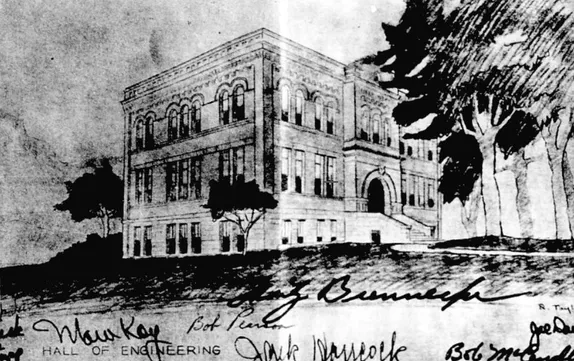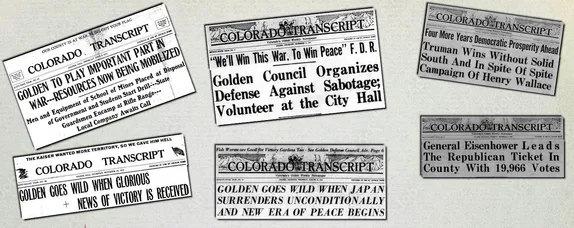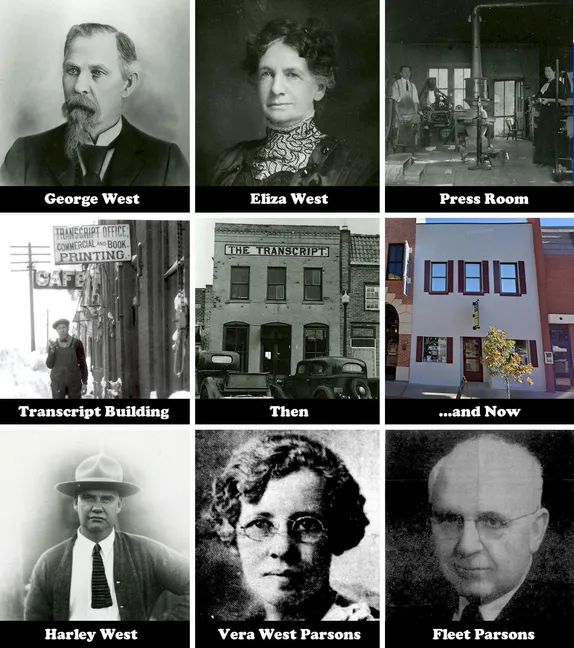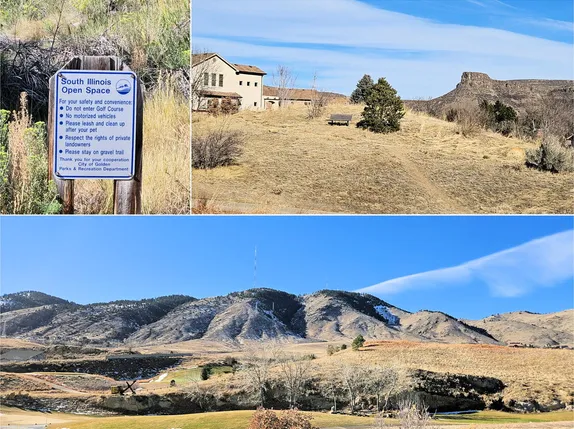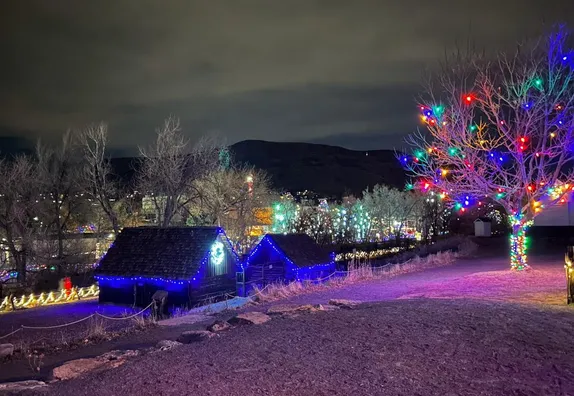105 Years Ago
The May 8, 1919 Colorado Transcript announced that Golden would soon be hosting its first-ever Chautauqua.
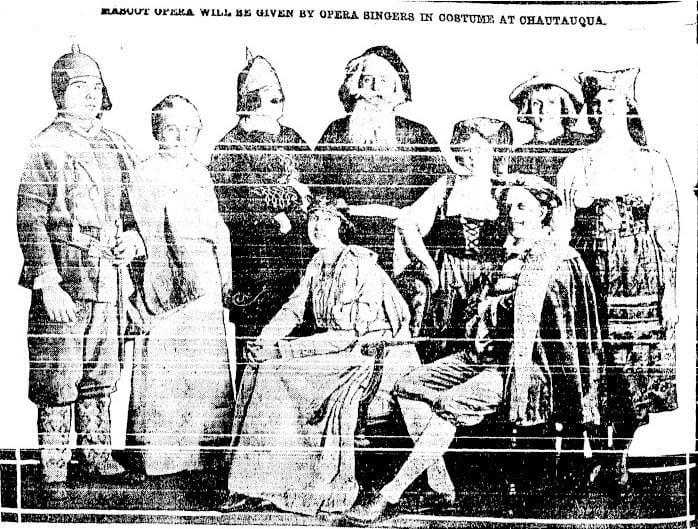
The Chautauqua movement began in the 1870s. It originated at a resort on Lake Chautauqua in upstate New York. The organizers offered lectures, concerts, and plays for the guests. It was popular with well-heeled families, intellectuals, and progressives. Over time, similar institutions were built in other parts of the country. Boulder’s Chautauqua, which was built in 1898, is a good example of these “permanent” Chautauquas.
Eventually, traveling Chautauquas developed, which moved from town to town. Several towns in Colorado hosted these traveling shows, including Greeley, Montrose, Salida, Loveland, and Rocky Ford. In late November of 1918, the Colorado Transcript announced that Golden would host its own Chautauqua the following June.
The traveling company arrived in June of 1919, setting up a tent to serve as their performance space. The Transcript promoted the events in advance and featured some advertising, but said little about them afterwards. The paper did say that several local citizens had guaranteed the contract, and announced that this year, unlike last, “cheap season tickets” would not be sold.
The Transcript never mentions ticket prices for the Golden Chautauqua, but an article by their Morrison correspondent mentions that season tickets would be $2.50 for the Morrison Chautauqua.
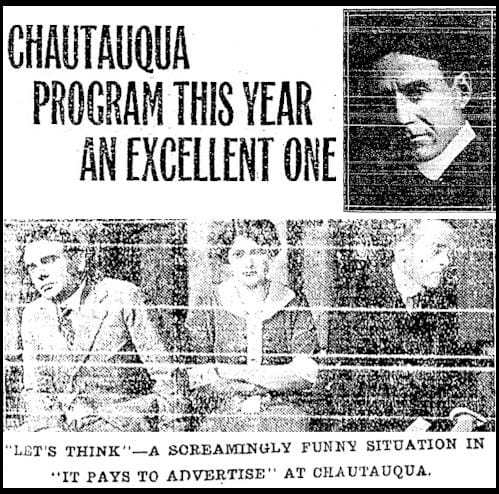
At the conclusion of the 1920 season, the paper reported that the season had been very successful and a return next year had been assured with a contract signed by 50 Golden people.
Apparently those 50 high-minded citizens were left holding the bag for any costs not covered by ticket sales. A May 1921 article said “Denver guarantors for the Chicago grand opera went in the hole to the tune of $17,000. Hope the Golden Chautauqua doesn’t go that far behind.”
At the end of the third summer event (in 1921) the paper said, “Golden’s third Chautauqua season closed last Friday night, after a series of fair entertainments. Indications are this city will not be on a Chautauqua circuit next year, as those who have had to dig up each year to make up the guarantee did not feel like signing again.”
In October, they were approached again by the promoter, and he persuaded several people to sign on again for the following year.
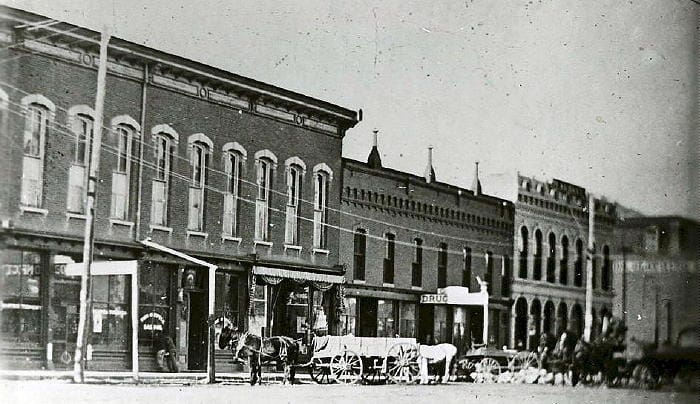
The 1922 Golden Chautauqua was held in the Golden Opera House, rather than a big tent. Once again, there were musicians, lecturers, and plays. The Transcript made no comments after the event, but the next spring (June 28, 1923) there was a brief comment in the paper saying only “Anyway, we don’t have to bother going to Chautauqua this summer.”
The bad taste must have lingered, because in 1925 the paper commented, “This is the time of year when guarantors of Chautauquas hold meetings and decide how much they will have to dig up to make up deficits. Chautauqua managements always work on a sure-thing basis, and a few public spirited citizens are always the sure things. However, it seems that every town and city falls for the plan at least once in a lifetime.”
Wikipedia has a good article that traces the history of the Chautauqua movement. It implies that the traveling shows were a significant step down from the higher-toned permanent ones.
When the Chautauqua program was at its peak of popularity, there were few forms of cultural enrichment available in small towns and rural communities. Radios were new and rare, as were gramophones. Most towns didn’t even have libraries. The chance to hear some new thoughts or professional musicians, or to see a play, must have been appealing.
Nowadays, a normal week in Golden includes opportunities to hear lectures, visit museums, see a play, visit an art exhibition, or hear live music. Then of course, there’s the library, the internet, Netflix, etc. Modern life is a perpetual Chautauqua.


